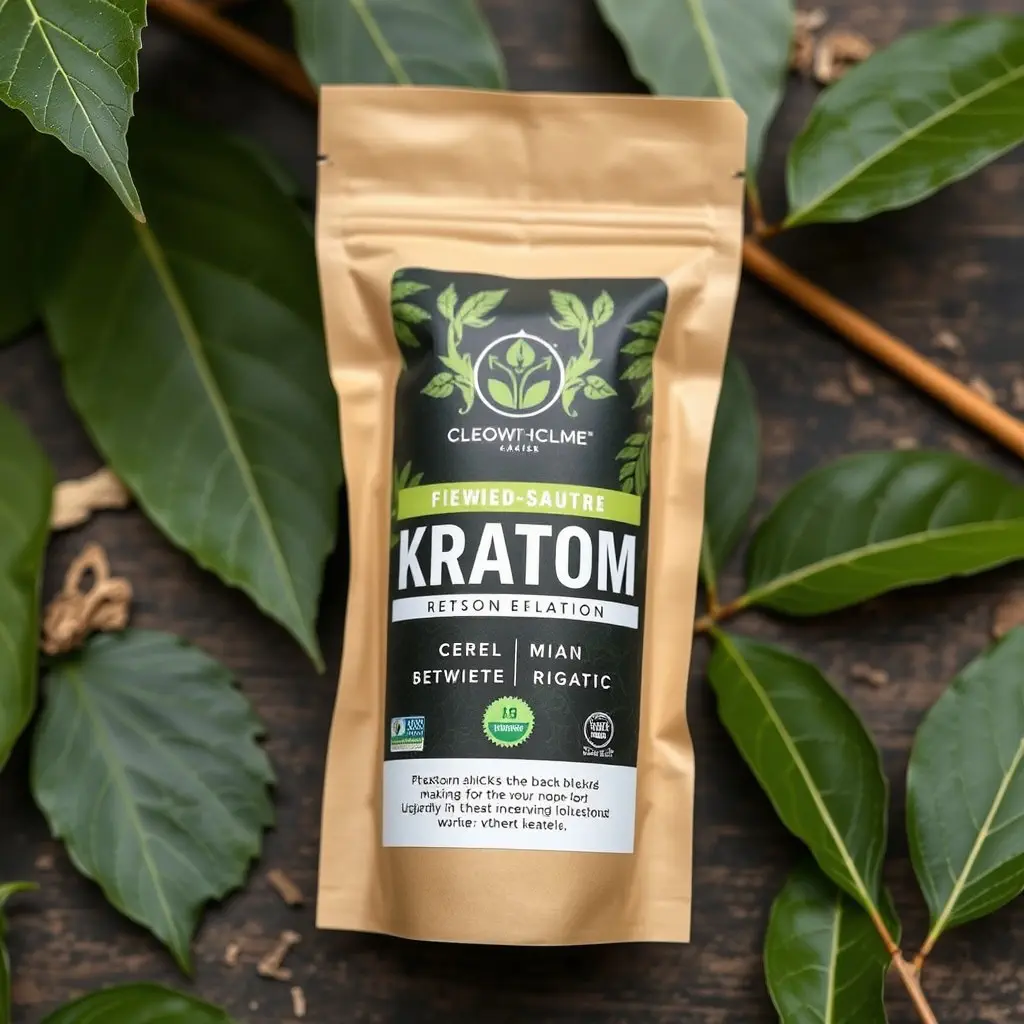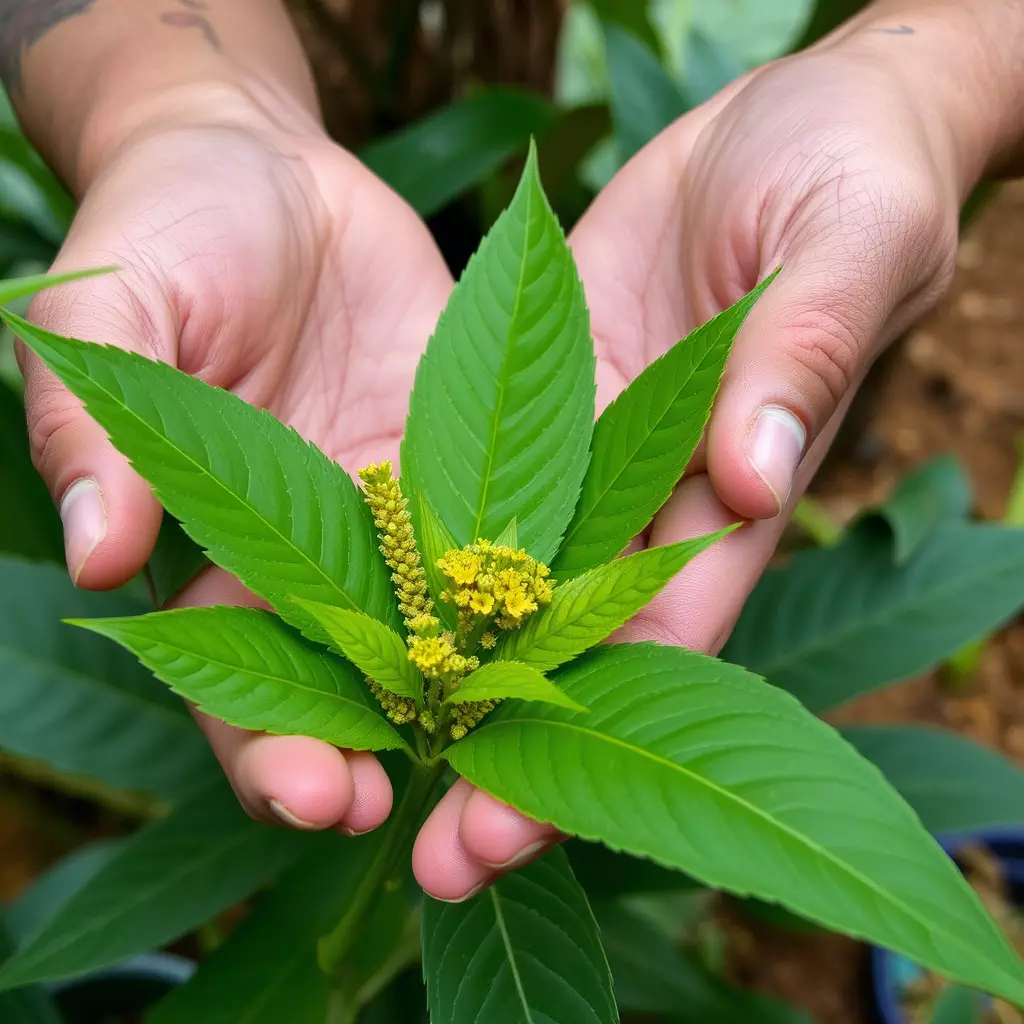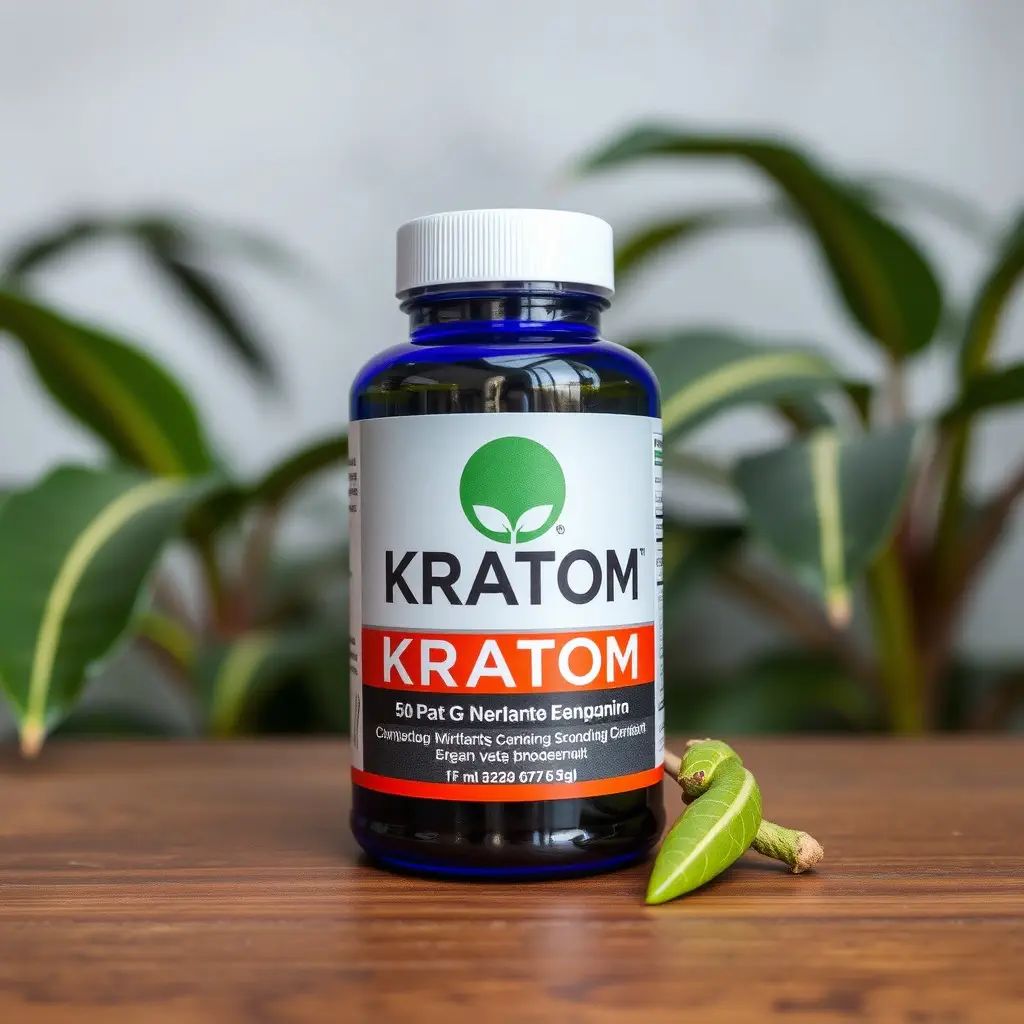Kratom, derived from the Mitragyna speciosa tree, has garnered attention for its anti-inflammatory properties, primarily due to its alkaloids mitragynine and 7-hydroxymitragynine. These compounds are being investigated for their ability to modulate immune responses by influencing key signaling pathways like NF-κB, potentially offering side-effect-free treatments for inflammatory conditions. Preclinical studies show that kratom can reduce pro-inflammatory cytokines, which could help alleviate symptoms associated with such diseases. The anti-inflammatory efficacy of kratom is supported by both cellular and molecular research as well as animal models. Its potential role in integrative health practices is significant, offering a natural alternative for pain management and inflammation control when used as part of a balanced lifestyle that includes proper diet, exercise, and stress management. However, it's important to approach kratom with caution, as its efficacy and safety are still under scientific scrutiny. A personalized healthcare approach, in consultation with professionals, is essential to ensure kratom complements other treatments and meets individual health needs. The physical health benefits of kratom are promising, but a full understanding of its implications for overall wellness requires further research and professional guidance before it can be recommended as part of a health regimen.
Exploring the multifaceted effects of kratom on human physiology, this article delves into the potential of this botanical substance in modulating inflammation responses within the body. With a focus on the physical health benefits of kratom, particularly its alkaloid profile and their mechanisms for reducing inflammation, we examine how kratom could be integrated into a holistic approach for managing inflammatory conditions. Join us as we uncover the science behind kratom’s anti-inflammatory properties and consider its role in promoting overall wellness.
- Unraveling the Role of Kratom in Modulating Inflammation Response
- Kratom's Alkaloids: Potential Mechanisms for Inflammation Reduction
- Integrating Kratom into a Holistic Anti-inflammatory Regimen
Unraveling the Role of Kratom in Modulating Inflammation Response

Kratom, a tropical deciduous tree native to Southeast Asia, has garnered attention for its diverse pharmacological properties, particularly in the realm of inflammation reduction. The physical health benefits of kratom are rooted in its alkaloid composition, which includes mitragynine and 7-hydroxymitragynine. These compounds have been studied for their potential to modulate the body’s inflammatory response. Inflammation is a critical component of the immune system’s defense mechanism against injury and infection; however, chronic or uncontrolled inflammation can lead to various health issues. Preclinical research suggests that kratom may influence multiple pathways involved in inflammation, including the NF-κB signaling pathway, which is a key regulator of immune responses. By targeting this and other pathways, kratom could potentially offer a novel approach to managing conditions characterized by excessive inflammation without the side effects often associated with conventional anti-inflammatory drugs.
The anti-inflammatory effects of kratom are not limited to its impact on cellular and molecular processes; it also exhibits promising results in animal models, indicating a broader application for addressing systemic inflammation. In these models, kratom has been observed to reduce pro-inflammatory cytokines, which are substances secreted by cells that contribute to the inflammatory response. This reduction in cytokine activity is significant as it may translate into a decrease in the symptoms associated with inflammation-related diseases. Furthermore, kratom’s anti-inflammatory potential extends beyond its direct effects; it also interacts synergistically with other treatments to enhance their therapeutic benefits. As research progresses, the role of kratom in modulating inflammation response may become a valuable addition to integrative health practices for managing inflammation-related conditions.
Kratom's Alkaloids: Potential Mechanisms for Inflammation Reduction

7-hydroxymitragynine and mitraphyne, two prominent alkaloids found in kratom, have been studied for their potential anti-inflammatory effects. These compounds may modulate the immune response by influencing key signaling pathways involved in the body’s inflammatory cascade. Preclinical research suggests that these alkaloids could inhibit pro-inflammatory cytokines, which are proteins that play a role in cell signaling and are associated with the immune response to injury or infection. By potentially reducing the production of these cytokines, kratom’s alkaloids may help in managing systemic inflammation, which could contribute to the broader category of physical health benefits of kratom. Additionally, the interaction of kratom alkaloids with various receptors within the nervous system might also influence pain perception, further supporting its role in mitigating discomfort associated with inflammatory conditions. Ongoing research continues to explore the mechanisms by which these compounds exert their effects, with the aim of understanding their therapeutic potential for inflammation reduction and overall physical health benefits.
Integrating Kratom into a Holistic Anti-inflammatory Regimen
Kratom, a botanical derived from the leaves of Mitragyna speciosa, has garnered attention in the realm of natural health remedies due to its potential anti-inflammatory properties. Proponents suggest that integrating kratom into a holistic anti-inflammatory regimen may offer significant physical health benefits. The alkaloids present in kratom leaves, such as mitragynine and 7-hydroxymitragynine, are believed to interact with the body’s opioid receptors, which could help modulate pain and inflammation responses. This interaction may provide relief from chronic inflammatory conditions without the side effects associated with conventional pharmaceuticals. When considering its inclusion in a health regimen, it is important to approach kratom with caution; its efficacy and safety are still under scientific scrutiny. A holistic approach to anti-inflammation should also include a balanced diet rich in anti-inflammatory foods, regular physical activity, stress management techniques, and possibly the concomitant use of other herbal supplements that have demonstrated anti-inflammatory effects. This comprehensive strategy can help address both the symptoms and underlying causes of inflammation, promoting overall well-being and potentially mitigating the risk of chronic diseases associated with persistent inflammation. As with any health regimen, it is advisable to consult with healthcare professionals before making significant changes or adding new supplements like kratom to your routine to ensure that it aligns with your individual health needs and does not interfere with other treatments you may be undergoing.
In conclusion, the exploration of kratom’s role in modulating inflammation response, coupled with insights into its alkaloids and their potential mechanisms for inflammation reduction, presents a compelling case for considering kratom as part of a holistic approach to maintaining physical health. The integration of kratom into anti-inflammatory regimens holds promise for those seeking natural alternatives to manage inflammation. Future research is imperative to fully understand its efficacy and long-term effects, ensuring safe and informed use within the broader context of wellness and healthcare.






